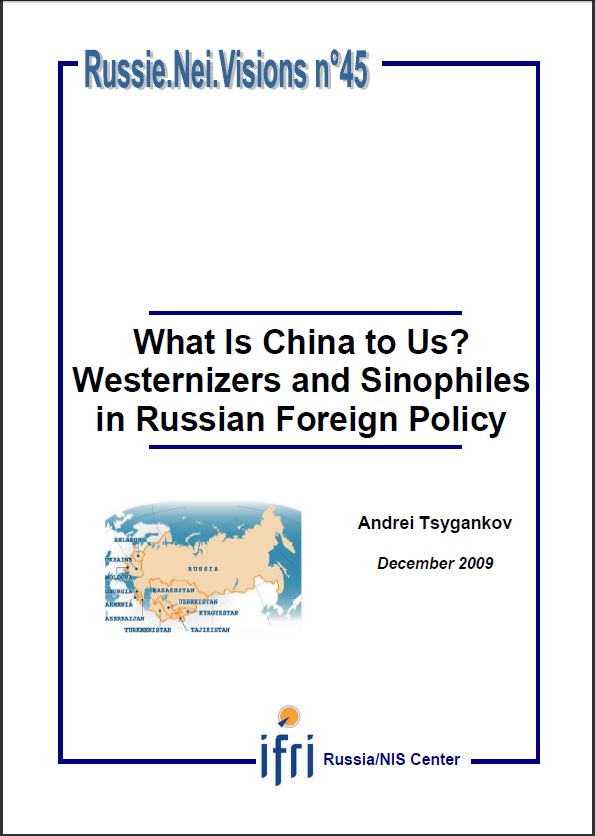What Is China to Us? Westernizers and Sinophiles in Russian Foreign Policy

As China's role in shaping the world grows, Russia is increasingly unable to resist its neighbor's economic and political influence. As a result, Russia's China discourse has evolved from the one dominated by Westernizers to one largely controlled by Sinophiles. The latter favor development of relations with China based on Russia's economic and security priorities. Although the official discourse remains focused on strengthening ties with Europe, the state is increasingly subject to pressures by various groups, both inside and outside state structures, with preferences for China. For the Western world, the prospect of the growing "Sinophilization" of Russia's foreign policy implies the need to strengthen ties with Russia, while preserving the existing level of strong relations with China.
Download the full analysis
This page contains only a summary of our work. If you would like to have access to all the information from our research on the subject, you can download the full version in PDF format.
What Is China to Us? Westernizers and Sinophiles in Russian Foreign Policy
Related centers and programs
Discover our other research centers and programsFind out more
Discover all our analysesThe Caspian Sea as an Emerging Energy Hub : Potentials and Limitations
This report analyzes the prospects of the Caspian Sea region — and its key actors except for Russia and Iran — becoming an important energy hub serving the needs of the European Union (EU).
The European Union's Strategic Test in Georgia
The political crisis brewing in Georgia is of an existential nature for the country. What is at stake is Georgia's future as a democratic and sovereign European nation (EU).
Commanders of Putin's Long War: Purged, Reshuffled and Disgruntled
The trend of reshuffling the Russian top military command in the course of a fast-evolving and far from successful war has progressed unevenly both across the Armed Forces’ structures and in time. The rationale for and timing of the abrupt cadre decisions made by Commander-in-Chief Putin often defy logical explanation, and the rare official clarifications are no more informative than the usual information blackout.
Russian Military Manpower After Two and a Half Years of War in Ukraine
In addition to a military victory in Ukraine, the Russian leadership is planning to build up sizable troop formations for a possible conflict with NATO in the Baltic region and the Kola Peninsula. In particular, current plans aim for the military manpower to grow by about 350,000, reaching a total of 1.5 million soldiers and commanders. In the context of the current conflict in Ukraine, this cannot be accomplished without a new wave of mass mobilization.









